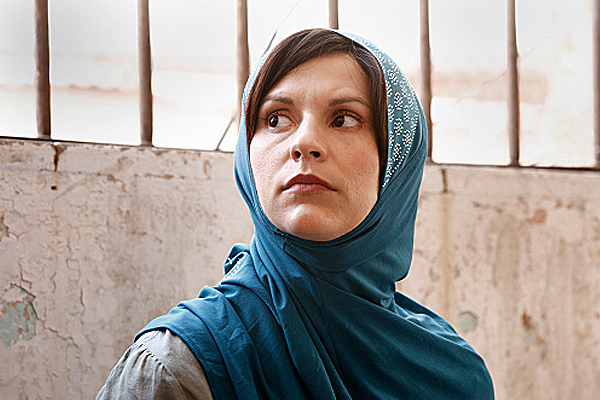[Lots of spoilers about Sunday night’s episode of “Homeland” ahead.]
Last night’s episode of “Homeland” contained two pulse-racing scenes, both of which hinged on big, fat coincidences, raising the specter of the damned “P” word for the season to come. I’m talking about “plausibility.” “Homeland” is not exactly a realistic series — prisoners of war turned terrorists don’t often get tapped to be vice-presidential candidates and have twisted love affairs with the mentally unstable CIA agents who suspect their real motivations — and yet plausibility is an issue, and I suspect will only become more of one as the season goes on.
As with the past season of “Breaking Bad,” which got hounded with “plausibility” questions — how realistic is it that Walt and Jesse would have done that train heist? Is leaving that incriminating book of poetry on his toilet something Walter White would really do? — it’s not whether the story lines could really happen (because none of them could really happen), but whether the story lines seem like they could really happen in the totally fake world we’ve already bought into. It’s a head-scratching dynamic (and, when you don’t find the coincidence in question that glaring, it can be a frustratingly nit-picky one). Here are two series founded on myriad, bedrock implausiblities that only set off audience bullshit alarms with the misuse of relatively small-time coincidences. And yet, they sure do. With the suspension of disbelief stretched to the limit, every request for further suspension better be on point.
In the first coincidence of last night’s episode, the vice-president invited Brody into a war room where Brody got to watch the CIA try to kill Abu Nazir in Beirut, thanks to intelligence provided by Carrie. The hit did not go off as planned because Brody — who wouldn’t have had clearance to enter the room, and certainly wouldn’t have been able to bring his cellphone in — managed to fumble out a text to Abu Nazir warning him he was about to get shot.
In the second coincidence, Carrie ignored Saul’s advice and ran into the home of one of Abu Nazir’s henchmen to gather evidence. She grabbed some papers, stuffed them into a backpack sitting on a table, and promptly got shot at. Another CIA agent had to help her storm out of the building. Hours later, as Saul sifted through Carrie’s haul, he discovered the ultimate clue in the lining of the backpack, a chip with the confession Brody had recorded before his attempt to suicide bomb the vice-president last year.
These were both big coincidences, but they strained the limits of credulity in different ways. The final scene of the episode was so gangbusters I don’t really care that finding the video in a randomly selected backpack is akin to locating the confession in a haystack, some haystack, somewhere on planet Earth. Not only did it work as a piece of staging (I was making crazy faces while I watched), it’s a coincidence that should pay huge dividends. It’s a brave storytelling gambit that totally upends the arc of the year to come, both dramatically and emotionally, and undoes, at least in part, the annoying trick of wiping Carrie’s memory at the end of last season. Saul knows the truth about Brody. Soon, presumably, other members of the CIA will know. Soon Carrie will know. The rest of the season won’t be about whether Brody gets caught, but how he gets caught and what to do with him once he gets caught. (In this way, the plot point mimics the show’s decision, mid-season last year, to tell the audience the truth about Brody’s motivations. Now it has told its characters.) Carrie grabbing that one bag sure was lucky, but the payoff feels big enough.
I am significantly less enamored of the Brody-miraculously-saves–Abu Nazir–with-three-seconds-to-spare scene. Brody sending texts from the war room is both implausible and totally unnecessary. Storywise, Abu Nazir can’t die, but there are plenty of ways he could have not died that didn’t involve Brody T-9-ing out an SOS. The CIA could have missed or someone else, someone in Beirut, could have tipped him off. If the point of the scene was to establish just how dedicated Brody is to Abu Nazir, it would have been just as dramatic and emotional — and a lot less ridiculous— to watch Brody watching Abu Nazir almost get shot, and then have to hide his relief. In my review of “Homeland,” I wrote that I hoped that while unwrapping a conspiracy, “Homeland” didn’t succumb to being a conspiracy. This was the scene I was thinking of, one that was so much more complicated and contrived than it needed to be.

